Search
Search results
Emma @ The Movies (1786 KP) rated Odd Thomas (2014) in Movies
Aug 15, 2020
I'd put off watching this for a long time, I loved the books by Dean Koontz and that made me a little nervous for the film. I'd almost forgotten about it until it popped up streaming, it's been a long time so I figured I'd forgotten enough about the books to see it.
Odd tries to live a simple life in Pico Mundo but when you have the ability to see dead people and talk to them it makes things difficult, especially when everything is pointing to something disastrous on the horizon.
The idea behind Odd's ability is a good one and I feel like they manage to illustrate it well during the film, foreknowledge may have helped a bit but I honestly don't remember that much from the books and we're given a succinct explanation.
Anton Yelchin plays the lead character and he has the perfect demeanour for it. There's a calm but scared quality that fits right into his wheelhouse and it was a match made in heaven.
Yelchin is off-set by Willem Dafoe as Chief Porter and Addison Timlin as Stormy Llewellyn, both of whom give great performances that bolster to story from each side. While they're not massive roles they both influence and guide Odd in very different ways and they're particularly effective characters.
The film plays out like a supernatural detective story with Odd at its centre trying to save Pico Mundo from an unknown terror. It creates a nice sense of intrigue to latch on to early on and plenty of fantasy action to move you along with the story at a quick pace.
For a relatively obscure film it's got a solid all round feel with passable graphics and a great visual style. Normally I find voice overs in films a little off putting but the bits of the story it's combined with work really well and again, added to the storytelling. I couldn't honestly say how accurate it was to the source material after such a long time, but I can tell you I wasn't disappointed with what I watched.
Originally posted on: https://emmaatthemovies.blogspot.com/2020/08/odd-thomas-movie-review.html
Odd tries to live a simple life in Pico Mundo but when you have the ability to see dead people and talk to them it makes things difficult, especially when everything is pointing to something disastrous on the horizon.
The idea behind Odd's ability is a good one and I feel like they manage to illustrate it well during the film, foreknowledge may have helped a bit but I honestly don't remember that much from the books and we're given a succinct explanation.
Anton Yelchin plays the lead character and he has the perfect demeanour for it. There's a calm but scared quality that fits right into his wheelhouse and it was a match made in heaven.
Yelchin is off-set by Willem Dafoe as Chief Porter and Addison Timlin as Stormy Llewellyn, both of whom give great performances that bolster to story from each side. While they're not massive roles they both influence and guide Odd in very different ways and they're particularly effective characters.
The film plays out like a supernatural detective story with Odd at its centre trying to save Pico Mundo from an unknown terror. It creates a nice sense of intrigue to latch on to early on and plenty of fantasy action to move you along with the story at a quick pace.
For a relatively obscure film it's got a solid all round feel with passable graphics and a great visual style. Normally I find voice overs in films a little off putting but the bits of the story it's combined with work really well and again, added to the storytelling. I couldn't honestly say how accurate it was to the source material after such a long time, but I can tell you I wasn't disappointed with what I watched.
Originally posted on: https://emmaatthemovies.blogspot.com/2020/08/odd-thomas-movie-review.html
Kristy H (1252 KP) rated Four Days of You and Me in Books
May 7, 2020
I hate writing less-than-positive reviews, especially for authors I typically enjoy, but this book was not a favorite of mine. It's told across Lulu and Alex's four class trips (one per year) with flashbacks to other times. I simply could not warm up to Lulu or Alex. Honestly, of the two, I probably liked him better, but we don't hear his side. It took nearly half the book for the story to engage me even a little bit, and I thought about giving up, but for some reason, I have a tough time just stopping a book.
Now, I read YA a ton, so it's not that I don't enjoy YA novels. I read one right after this and *loved* it. But I found this story way too simplistic, and I feel like teens would too. There is so much better YA out there--for all of us. The book just felt simplistic in its writing and the "will they / won't they" storyline was boring. I did not care if they did or not. Honestly, there was a side plot about Lulu's gay best friend Max that was much more interesting--I would have rather read about him!
Supposedly Lulu is an artist/writer and that's her thing, but that felt forced. Mostly, the book felt about a girl (and her friends) all trying to find boys to like (and like them back). That's what they cared about and talked about. I felt no huge connection between Alex and Lulu and hence no reason to root for them to choose each other. They didn't feel destined for one other, as most couples do in a good romance. The story does pick up a bit near the end, but by then, I just felt burned out.
So maybe this story would resonate a bit more with a teen set (and it should be an older teen set, due to language and themes), but there are a lot of other better books out there. Now, others seem to enjoy this more than me, so maybe I just got caught in a bad mood. 2.5 stars for me, though.
Now, I read YA a ton, so it's not that I don't enjoy YA novels. I read one right after this and *loved* it. But I found this story way too simplistic, and I feel like teens would too. There is so much better YA out there--for all of us. The book just felt simplistic in its writing and the "will they / won't they" storyline was boring. I did not care if they did or not. Honestly, there was a side plot about Lulu's gay best friend Max that was much more interesting--I would have rather read about him!
Supposedly Lulu is an artist/writer and that's her thing, but that felt forced. Mostly, the book felt about a girl (and her friends) all trying to find boys to like (and like them back). That's what they cared about and talked about. I felt no huge connection between Alex and Lulu and hence no reason to root for them to choose each other. They didn't feel destined for one other, as most couples do in a good romance. The story does pick up a bit near the end, but by then, I just felt burned out.
So maybe this story would resonate a bit more with a teen set (and it should be an older teen set, due to language and themes), but there are a lot of other better books out there. Now, others seem to enjoy this more than me, so maybe I just got caught in a bad mood. 2.5 stars for me, though.

Real Boxing
Games and Entertainment
App
Real Boxing is the best FREE fighting experience on the App Store, with jaw-dropping graphics,...
Merissa (13749 KP) rated Queen to King Three (Diviner's Game #3) in Books
Feb 12, 2021 (Updated Aug 3, 2023)
QUEEN TO KING THREE is the third and final book in this trilogy but NOT, I'm pleased to say, in this world. And what a fitting end it is. Everything that was unclear becomes clear. And all written with emotion!
We already know Robbie's story is heartbreaking, but I had no idea just how bad it really was and how much I hated a character that I didn't meet. Robbie is a strong character and deserves to be seen as such. As for Chanda, aww, bless him. He's a sweetie. He is trying so hard to protect and save lives, even knowing how hard it will make his life. These two certainly belong together, and I love how the small guy comes out on top. 😉
Now, this is the third book in the series, and I don't know of many people that would start with #3, but just in case, please don't! This one runs on the same parallel timeline as the first two, and you really NEED to read those first. This one does give you extra insights, after all, it's told partly from Chanda's perspective.
This book feels longer than the other two, but that may just be because of all the information you are given. It didn't feel too long though. I don't think any words were wasted. The Big Bad is revealed, and I honestly can't say how I feel about that! I didn't see it coming in one way, and yet I did in another. Kudos to Jennifer Cody for providing such a great story with all of its twists and turns.
This is one series that I didn't expect to enjoy as much as I did, with a new-to-me author. I'm glad I took the chance, and I honestly recommend you take it too. Absolutely brilliant.
* A copy of this book was provided to me with no requirements for a review. I voluntarily read this book, and the comments here are my honest opinion. *
Merissa
Archaeolibrarian - I Dig Good Books!
Feb 12, 2021
We already know Robbie's story is heartbreaking, but I had no idea just how bad it really was and how much I hated a character that I didn't meet. Robbie is a strong character and deserves to be seen as such. As for Chanda, aww, bless him. He's a sweetie. He is trying so hard to protect and save lives, even knowing how hard it will make his life. These two certainly belong together, and I love how the small guy comes out on top. 😉
Now, this is the third book in the series, and I don't know of many people that would start with #3, but just in case, please don't! This one runs on the same parallel timeline as the first two, and you really NEED to read those first. This one does give you extra insights, after all, it's told partly from Chanda's perspective.
This book feels longer than the other two, but that may just be because of all the information you are given. It didn't feel too long though. I don't think any words were wasted. The Big Bad is revealed, and I honestly can't say how I feel about that! I didn't see it coming in one way, and yet I did in another. Kudos to Jennifer Cody for providing such a great story with all of its twists and turns.
This is one series that I didn't expect to enjoy as much as I did, with a new-to-me author. I'm glad I took the chance, and I honestly recommend you take it too. Absolutely brilliant.
* A copy of this book was provided to me with no requirements for a review. I voluntarily read this book, and the comments here are my honest opinion. *
Merissa
Archaeolibrarian - I Dig Good Books!
Feb 12, 2021
Merissa (13749 KP) rated The Reject and the Rebound (Leighton #3) in Books
Dec 8, 2023
WARNING - contains a spoiler!
THE REJECT AND THE REBOUND is the first book by this author I have read, although this is book three in the Leighton series. I do wish I had read the other books, but I don't feel as though it made a huge difference by not having done so.
Owen is the first one we meet, and he is trying to recover from his boyfriend walking out on him with no notice whatsoever. Alex is in a similar situation with his wife but further down the line. Both guys knew each other at school, although they ran in different circles. The attraction was there and maybe their time for acting upon it is now.
I thoroughly enjoyed this story! There were a few things I wanted more of, but on the whole, this was a hug-of-a-book. It is fast-paced in that Alex and Owen get together quickly. Because of that, when life throws Alex a sh!tty curveball, there is a bit of angst between the two of them. But, do you know what? They both took time to think about the situation and dealt with it as mature men. Loved that part!
SPOILER
Maybe it's because it's part of a series, but this is one of the rare romance books where everything isn't tied up with a pretty bow at the end. We get the feeling that these two are it for as long as they live, but as the book ends, they are still living apart and are not engaged. I'm still unsure how I feel about that! 🤣 Life isn't neat and tidy, I know that, but I do like my romances with a HEA! Hopefully, as the series progresses, they will get theirs.
End of Spoiler
A great read by a new-to-me author that I definitely recommend.
** same worded review will appear elsewhere **
* A copy of this book was provided to me with no requirements for a review. I voluntarily read this book; the comments here are my honest opinion. *
Merissa
Archaeolibrarian - I Dig Good Books!
Dec 8, 2023
Owen is the first one we meet, and he is trying to recover from his boyfriend walking out on him with no notice whatsoever. Alex is in a similar situation with his wife but further down the line. Both guys knew each other at school, although they ran in different circles. The attraction was there and maybe their time for acting upon it is now.
I thoroughly enjoyed this story! There were a few things I wanted more of, but on the whole, this was a hug-of-a-book. It is fast-paced in that Alex and Owen get together quickly. Because of that, when life throws Alex a sh!tty curveball, there is a bit of angst between the two of them. But, do you know what? They both took time to think about the situation and dealt with it as mature men. Loved that part!
SPOILER
Maybe it's because it's part of a series, but this is one of the rare romance books where everything isn't tied up with a pretty bow at the end. We get the feeling that these two are it for as long as they live, but as the book ends, they are still living apart and are not engaged. I'm still unsure how I feel about that! 🤣 Life isn't neat and tidy, I know that, but I do like my romances with a HEA! Hopefully, as the series progresses, they will get theirs.
End of Spoiler
A great read by a new-to-me author that I definitely recommend.
** same worded review will appear elsewhere **
* A copy of this book was provided to me with no requirements for a review. I voluntarily read this book; the comments here are my honest opinion. *
Merissa
Archaeolibrarian - I Dig Good Books!
Dec 8, 2023
Merissa (13749 KP) rated Ascendant (The Made Ones Sage #3) by Vicki Stiefel in Books
May 20, 2022 (Updated Jun 19, 2023)
ASCENDANT is the final in The Made Ones Saga and we have an action-filled climax. And I'm not talking about steamy times, either!
We start where book two finished - Sybi waking up in a glass casket and being rescued by Kes. She has some recovery time during which her sisters visit and talk to her, hoping that will help her come back to them. The overall story arc is also coming to a head, with the Alchemics working hard to destroy Eleutia. The Clans and CastOuts, obviously, don't want this, so they're working just as hard to ensure that doesn't happen.
I liked Sybi and Kes but I didn't feel the connection like I wanted to. There are some pretty big obstacles in their path that seem to 'magically' disappear without much (if any) communication. For me, I felt their relationship got lost slightly in the dramatic conclusion. Most of the time they were together, they were talking or planning what to do next in the war. I'm sure most won't agree with me here, but that is how I felt.
This book also doesn't feel like the ending!!! I was left with multiple questions, so I'm really hoping there is more to come in this world! It would be fantastic to see how they all cope now the Alchemics have been defeated, how they change their world, and what the new generation gets up to. Hints are also given about other pairings, including Alrina, so I would love to know more.
I did think this was a fitting end to the sisters' trilogy, and meeting Mother and Father Tree was brilliant. I found those meetings to be so full of feeling and humour, it brought a huge smile to my face every time!
A great series that I have no hesitation in recommending.
** same worded review will appear elsewhere **
* A copy of this book was provided to me with no requirements for a review. I voluntarily read this book; the comments here are my honest opinion. *
Merissa
Archaeolibrarian - I Dig Good Books!
May 16, 2022
We start where book two finished - Sybi waking up in a glass casket and being rescued by Kes. She has some recovery time during which her sisters visit and talk to her, hoping that will help her come back to them. The overall story arc is also coming to a head, with the Alchemics working hard to destroy Eleutia. The Clans and CastOuts, obviously, don't want this, so they're working just as hard to ensure that doesn't happen.
I liked Sybi and Kes but I didn't feel the connection like I wanted to. There are some pretty big obstacles in their path that seem to 'magically' disappear without much (if any) communication. For me, I felt their relationship got lost slightly in the dramatic conclusion. Most of the time they were together, they were talking or planning what to do next in the war. I'm sure most won't agree with me here, but that is how I felt.
This book also doesn't feel like the ending!!! I was left with multiple questions, so I'm really hoping there is more to come in this world! It would be fantastic to see how they all cope now the Alchemics have been defeated, how they change their world, and what the new generation gets up to. Hints are also given about other pairings, including Alrina, so I would love to know more.
I did think this was a fitting end to the sisters' trilogy, and meeting Mother and Father Tree was brilliant. I found those meetings to be so full of feeling and humour, it brought a huge smile to my face every time!
A great series that I have no hesitation in recommending.
** same worded review will appear elsewhere **
* A copy of this book was provided to me with no requirements for a review. I voluntarily read this book; the comments here are my honest opinion. *
Merissa
Archaeolibrarian - I Dig Good Books!
May 16, 2022
Debbiereadsbook (1647 KP) rated Silent Partner (Fox Hollow Zodiac #3) in Books
Jul 27, 2024
I haven't read the other books, gonna go back!
Independent reviewer for GRR, I was gifted my copy of this book.
This is book 3 in the Fox Hollow Zodiac series, and I have NOT read books 1, Huntsman and book 2, Again. Somethings were missing for me, mostly about the Fox Institute and what it was there for, but since Riley spends very little time there, and what HE was doing there was explained, I let it ride. I think I might go back and read books 1 and 2, though. Not because I need to, but because I want to know about Liam/Russ and Noah/Drew and their stories. They play a part here.
Riley runs from his abusive ex, and finds himself a study subject in The Fox Institute, since Riley is psychically silent: no one can read his mind. Which is great, but Brandon is a psychic! And a moose. There is immediate attraction, but Riley is scared. His ex might show up and ruin everything.
I liked the fact that Brandon doesn't get that "MINE" moment, when he meets Riley. Yes, he is attracted, but only the MOOSE half of Brandon calls for his mate. Brandon the MAN doesn't quite feel it. He does, in the end, but not at the beginning. I liked that Riley was wary enough of Brandon as a psychic to question him, but the fact that his moose makes him feel safe surprises Riley. I liked that fact that they got to know each other, before acting on the attraction.
I liked Brandon's group of friends and the support he gets from them. I liked that they took Riley in, once they were a couple.
I struggled a bit with the fact that Riley's ex just turned up: there was no build up to that. The ex was talked about, and then he appears. Could have done with more on that but said ex does get his just desserts!
All in all, I liked this a lot. I'll go back and read the first two books, just as soon as I can.
4 very good stars
*same worded review will appear elsewhere
This is book 3 in the Fox Hollow Zodiac series, and I have NOT read books 1, Huntsman and book 2, Again. Somethings were missing for me, mostly about the Fox Institute and what it was there for, but since Riley spends very little time there, and what HE was doing there was explained, I let it ride. I think I might go back and read books 1 and 2, though. Not because I need to, but because I want to know about Liam/Russ and Noah/Drew and their stories. They play a part here.
Riley runs from his abusive ex, and finds himself a study subject in The Fox Institute, since Riley is psychically silent: no one can read his mind. Which is great, but Brandon is a psychic! And a moose. There is immediate attraction, but Riley is scared. His ex might show up and ruin everything.
I liked the fact that Brandon doesn't get that "MINE" moment, when he meets Riley. Yes, he is attracted, but only the MOOSE half of Brandon calls for his mate. Brandon the MAN doesn't quite feel it. He does, in the end, but not at the beginning. I liked that Riley was wary enough of Brandon as a psychic to question him, but the fact that his moose makes him feel safe surprises Riley. I liked that fact that they got to know each other, before acting on the attraction.
I liked Brandon's group of friends and the support he gets from them. I liked that they took Riley in, once they were a couple.
I struggled a bit with the fact that Riley's ex just turned up: there was no build up to that. The ex was talked about, and then he appears. Could have done with more on that but said ex does get his just desserts!
All in all, I liked this a lot. I'll go back and read the first two books, just as soon as I can.
4 very good stars
*same worded review will appear elsewhere
Inky Books (3 KP) rated Eon: Dragoneye Reborn (Eon, #1) in Books
Jun 21, 2018
When I was young and impressionable (well, not really impressionable, I’ve actually always been the stubborn and fiery redhead I am now, just a little more shy) I read a book about a sixteen year old girl, in a man’s world, pretending to be a twelve year old boy. In this same book there were also dragons, no not the ones you hunt to steal their treasure, but the kind that you bond with and can gain amazing powers from.
Of course it has dragons; how could I resist? Ever since reading Eargon I’ve had a thing for books with dragons in them, though it is rather hard to find some where it isn’t all about dragon hunting. Anyone have any suggestions?
Anyway, so this book was one of my favorites as a teenager because of the world building as well as the secrets and powers that the characters have. And I really do like it, though I’m probably going to say more bad things than I will good for a reason I will explain later.
So, the good things:
Main character, Eona. I guess I feel like she is similar to me in a way. She can be stubborn but also knows when to hold herself back when she needs to. She can be rather forceful and hostile while also having a nicer, sweeter side. She struggles with much through the book and it gives the book a more realistic feeling.
The world of the Dragoneyes. It’s ancient Chinese mythology, and mythology is something I like to read and learn about. It is very interesting to read about, and the author did her research on the subject.
And the bad things:
The book moved rather slowly. Yes, there was a lot that happened, but there was also a large amount of the politics of the world that got involved to. Politics isn’t something I like, it’s actually something I am starting to hate in recent years. So this doesn’t appeal to me. When I got closer to the end I skimmed, half because I knew what was happening for the most part, half because I was getting so bored with the back and forth of the characters.
The characters. Most of the characters had a fake feeling to them. They seemed one sided and all kind of reacted in similar ways when faced with these situations. They were almost flat and didn’t seem real.
Eona. Yes I know she is in the good things too, but I really dislike her fatal flaw. It took her most of the book to figure out (even though she wasn’t even the one who figured it out in the end) what the secret was to her power. It was rather annoying and I wish the author would have allowed Eona to figure it out a bit soon and have some more of the awesome power in there.
The good aspects of this book do outweigh the bad ones, but it still caused me to think hard about the rating I would give it.
Of course it has dragons; how could I resist? Ever since reading Eargon I’ve had a thing for books with dragons in them, though it is rather hard to find some where it isn’t all about dragon hunting. Anyone have any suggestions?
Anyway, so this book was one of my favorites as a teenager because of the world building as well as the secrets and powers that the characters have. And I really do like it, though I’m probably going to say more bad things than I will good for a reason I will explain later.
So, the good things:
Main character, Eona. I guess I feel like she is similar to me in a way. She can be stubborn but also knows when to hold herself back when she needs to. She can be rather forceful and hostile while also having a nicer, sweeter side. She struggles with much through the book and it gives the book a more realistic feeling.
The world of the Dragoneyes. It’s ancient Chinese mythology, and mythology is something I like to read and learn about. It is very interesting to read about, and the author did her research on the subject.
And the bad things:
The book moved rather slowly. Yes, there was a lot that happened, but there was also a large amount of the politics of the world that got involved to. Politics isn’t something I like, it’s actually something I am starting to hate in recent years. So this doesn’t appeal to me. When I got closer to the end I skimmed, half because I knew what was happening for the most part, half because I was getting so bored with the back and forth of the characters.
The characters. Most of the characters had a fake feeling to them. They seemed one sided and all kind of reacted in similar ways when faced with these situations. They were almost flat and didn’t seem real.
Eona. Yes I know she is in the good things too, but I really dislike her fatal flaw. It took her most of the book to figure out (even though she wasn’t even the one who figured it out in the end) what the secret was to her power. It was rather annoying and I wish the author would have allowed Eona to figure it out a bit soon and have some more of the awesome power in there.
The good aspects of this book do outweigh the bad ones, but it still caused me to think hard about the rating I would give it.
BankofMarquis (1832 KP) rated Cold War (2018) in Movies
Feb 15, 2019
A meditation on love
There are some movies that I can bang the review out the moment I leave the theater (for example, ANY movie starring Dwayne "The Rock" Johnson). There are other films that I need to sit with for a few days and sort out my feelings and thoughts about them. Such is the case with the Polish film COLD WAR.
I am an "Oscar completist" and, thus, needed to see this film, not because I am a big fan of foreign films or because I am culturally literate, but because the Director of this film, Pawel Pawlikowski, was nominated for an Oscar for Best Director.
And I'm glad I saw this film, for COLD WAR is a rich, thoughtful, meditation on love and sacrifice that is full of mood and emotion. This film was conceived, written and directed by Pawlikowski and it shows on the screen. There is much heart on display here. It is said that Pawlikowski patterned the two lead characters after the tumultuous relationship of his parents (he even gave them his parents name), so I gotta think there is some knowledge and depth to these characters and their situations that resonate.
I walked into this film not knowing much about the plot or characters and this actually worked in the favor of the film, so I won't say much about it now except to say that this film follows the characters Zula (Joanna Kulig) and Wiktor (Tomasz Kot) as they experience life and love in Poland in the years just following WWII, the "Cold War" years.
As far as the acting goes, both Kulig and Kot are strong and they share a rich chemistry with each other. The film crackled when these two personalities were on the screen together and didn't crackle when they weren't together, so that must say something for their performances. Anyone else on the screen is "fine" (read: forgettable) in service of the plot and the two leads.
But, make no mistake, this film is a Director's film and Pawlikowski deserves the Academy Award nomination he received. The scenes are lush, and very "European" (lots of shots of still objects with a single viola playing in the background). The film was shot in black and white and this really helps the "behind the Iron Curtain" feel of things.
This film was also nominated for Best Foreign Language Film, and I think it has a good shot for that award (Pawlikowski is, I feel, a long shot for his award). Which makes this film worth seeing, just know you are getting a Polish language film, centered on two characters, with lots of long, lingering "beauty" shots setting up environment and feel. Don't expect fast pacing and action.
Letter Grade: B+
7 1/2 (out of 10) stars and you can take that to the Bank(ofMarquis)
I am an "Oscar completist" and, thus, needed to see this film, not because I am a big fan of foreign films or because I am culturally literate, but because the Director of this film, Pawel Pawlikowski, was nominated for an Oscar for Best Director.
And I'm glad I saw this film, for COLD WAR is a rich, thoughtful, meditation on love and sacrifice that is full of mood and emotion. This film was conceived, written and directed by Pawlikowski and it shows on the screen. There is much heart on display here. It is said that Pawlikowski patterned the two lead characters after the tumultuous relationship of his parents (he even gave them his parents name), so I gotta think there is some knowledge and depth to these characters and their situations that resonate.
I walked into this film not knowing much about the plot or characters and this actually worked in the favor of the film, so I won't say much about it now except to say that this film follows the characters Zula (Joanna Kulig) and Wiktor (Tomasz Kot) as they experience life and love in Poland in the years just following WWII, the "Cold War" years.
As far as the acting goes, both Kulig and Kot are strong and they share a rich chemistry with each other. The film crackled when these two personalities were on the screen together and didn't crackle when they weren't together, so that must say something for their performances. Anyone else on the screen is "fine" (read: forgettable) in service of the plot and the two leads.
But, make no mistake, this film is a Director's film and Pawlikowski deserves the Academy Award nomination he received. The scenes are lush, and very "European" (lots of shots of still objects with a single viola playing in the background). The film was shot in black and white and this really helps the "behind the Iron Curtain" feel of things.
This film was also nominated for Best Foreign Language Film, and I think it has a good shot for that award (Pawlikowski is, I feel, a long shot for his award). Which makes this film worth seeing, just know you are getting a Polish language film, centered on two characters, with lots of long, lingering "beauty" shots setting up environment and feel. Don't expect fast pacing and action.
Letter Grade: B+
7 1/2 (out of 10) stars and you can take that to the Bank(ofMarquis)
Michael Mitcheson (16 KP) rated the PlayStation 4 version of Apex Legends in Video Games
Feb 27, 2019
Solid game but will it survive the long run.
Apex legends is another battle royal game that has taken the world by storm. Some would say its a watered down genre however apex legends redefines the format adding its own spin on the mode.
Graphically it is stunning. A good amount of fauna, desert, buildings and caverns to showcase different textures whilst not quite being as cartoon like as fortnite.
The player handling is fantastic with vaulting, sliding and using zip lines. It does not feel clunky but rather smooth and fluid.
Sound is fantastic. Weapons sound so good and you can distinguish weapons prior to a fight just from hearing them. Footsteps alter from the terrain that is being ran on and dulled by crouching.
Currently the game is 3 person squads and has a max player count at 60 lower than the 4 person squad and 100 player count. This works well for the pace of the game and map size. You are never too far away from getting in the action should you wish after surviving the initial 5 minute onslaught for areas and that sweet precious loot.
You'll notice I put squad / team work in both positive and negative. The positive is it semi forces you to land as a squad. This can be cancelled by those who aren't the jump master and want to go rogue. I have noticed this but not is often as other games of the genre. 3 players allows for a good amount of mutual support, mixing and matching legend abilities to secure a win and having a diverse amount of weapons to cover all ranges. I have also negatived it due to the rogues, item/weapon/ammo stealing, lack of pinging (more on this after) and absolute lack of microphone communication. That last one is not a fault of the game or dev but merely an observation for the ps4 platform.
The ping system is the single point that makes this game fantastic. If you have a child or a broken mic you can opt to ping. Let's travel here, I'm watching here, enemy sighted and so forth. If you're not talking use the feature it's fantastic and also ends the classic e emy over there, where? There group conversation.
Legends have unique abilities but in a nutshell play what you like. Pick a character that has perks that fit your style. You can pick up that elusive 'dub' in any combination of legends. I still haven't settled. On one but enjoy 3-4 that I switch around. Its also good to have that incase someone rudely steals your character.
Minor bugs so far that I've encountered are falling through the floor (now patched allegedly and in fairness it hasn't happened to me in a while), items fallingb, through building/ dropship floor, death boxes dissapearing and falling through floors. The devs are however extremely good currently at updating and listening to the community.
Weapon balance is pretty damn bad (personal opinion). Peacekeeper is a beast shotgun at close range and mid range. The range for me needs dropping and that's prior to finding the attachment hop ups to strengthen it. The Mozambique is just a dreadful shotgun that you will find left on the floor to rust by just about everyone.
Very quickly on microtransactions. They are cosmetic only. You can warn everything including new legends in time but prepare to grind. Real money does not need to be used.
Time will tell if this game will survive the test of time as the devs release the battle pass and future content. Currently I'd give it 7/10. Solid game and worth a try by anyone. It is free after all.
Graphically it is stunning. A good amount of fauna, desert, buildings and caverns to showcase different textures whilst not quite being as cartoon like as fortnite.
The player handling is fantastic with vaulting, sliding and using zip lines. It does not feel clunky but rather smooth and fluid.
Sound is fantastic. Weapons sound so good and you can distinguish weapons prior to a fight just from hearing them. Footsteps alter from the terrain that is being ran on and dulled by crouching.
Currently the game is 3 person squads and has a max player count at 60 lower than the 4 person squad and 100 player count. This works well for the pace of the game and map size. You are never too far away from getting in the action should you wish after surviving the initial 5 minute onslaught for areas and that sweet precious loot.
You'll notice I put squad / team work in both positive and negative. The positive is it semi forces you to land as a squad. This can be cancelled by those who aren't the jump master and want to go rogue. I have noticed this but not is often as other games of the genre. 3 players allows for a good amount of mutual support, mixing and matching legend abilities to secure a win and having a diverse amount of weapons to cover all ranges. I have also negatived it due to the rogues, item/weapon/ammo stealing, lack of pinging (more on this after) and absolute lack of microphone communication. That last one is not a fault of the game or dev but merely an observation for the ps4 platform.
The ping system is the single point that makes this game fantastic. If you have a child or a broken mic you can opt to ping. Let's travel here, I'm watching here, enemy sighted and so forth. If you're not talking use the feature it's fantastic and also ends the classic e emy over there, where? There group conversation.
Legends have unique abilities but in a nutshell play what you like. Pick a character that has perks that fit your style. You can pick up that elusive 'dub' in any combination of legends. I still haven't settled. On one but enjoy 3-4 that I switch around. Its also good to have that incase someone rudely steals your character.
Minor bugs so far that I've encountered are falling through the floor (now patched allegedly and in fairness it hasn't happened to me in a while), items fallingb, through building/ dropship floor, death boxes dissapearing and falling through floors. The devs are however extremely good currently at updating and listening to the community.
Weapon balance is pretty damn bad (personal opinion). Peacekeeper is a beast shotgun at close range and mid range. The range for me needs dropping and that's prior to finding the attachment hop ups to strengthen it. The Mozambique is just a dreadful shotgun that you will find left on the floor to rust by just about everyone.
Very quickly on microtransactions. They are cosmetic only. You can warn everything including new legends in time but prepare to grind. Real money does not need to be used.
Time will tell if this game will survive the test of time as the devs release the battle pass and future content. Currently I'd give it 7/10. Solid game and worth a try by anyone. It is free after all.
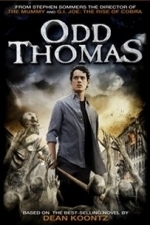
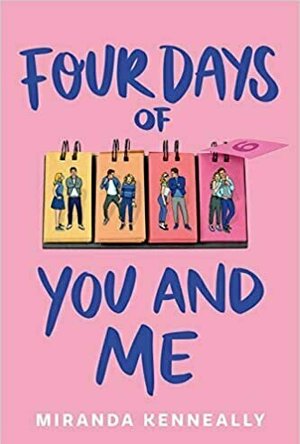
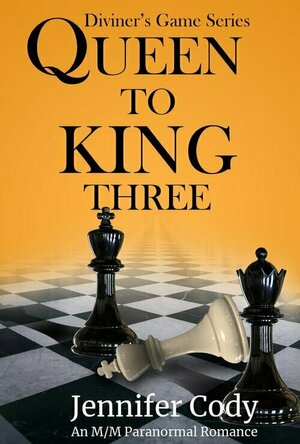

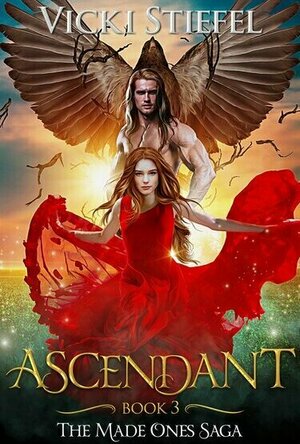

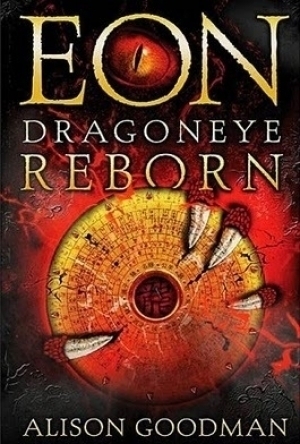


AJaneClark (3975 KP) Aug 17, 2020
Amy Norman (1048 KP) Aug 18, 2020